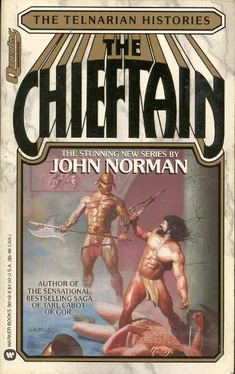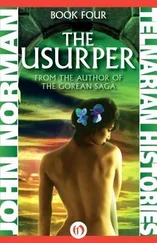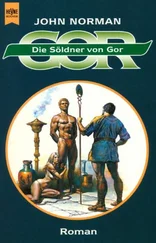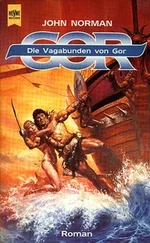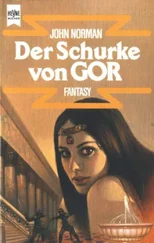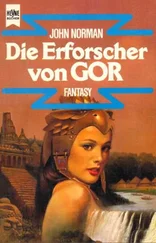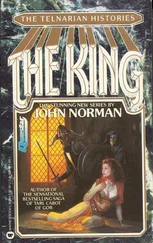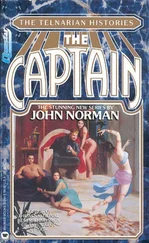be the original name. In the beginning, it may have been simply a name, perhaps associated with ‘Vanland,’ which is “forest land.” But, as I said, it is not really known. Another derivation is from ‘Vanganz,’ a word for a ritualized form of vengeance. We know them in history, of course, as Vandals, and I shall so refer to them, trusting that the reader will not allow himself to be misled by any inessential accretions which might now adhere to the name. Their like, you see, may not be unique to our own reality. Too, I do not presume to judge, leaving that for those who feel entitled to do so. My office, in this matter, as I have indicated, is a simple one, merely to tell what happened.
“The left forearm!” called Mujiin back to Hunlaki.
There was another cry of pain from the boy. Mujiin was skilled, almost as much as Hunlaki. Hunlaki wondered if Mujiin was showing off. Then Hunlaki surveyed the snowy plains about them. It would not do, of course, if the lad were a sacrifice, to distract the guard, while pursuit slipped past them, or might even be prepared to fall upon them. Later Mujiin would learn to be thoughtful about such matters, but Mujiin was young. He was easily distracted by blood, and the sport.
There was another cry of pain from the lad.
Hunlaki unslung his own lance.
It was not that he wanted to participate in the sport. It was only that the lad seemed too much weakened by the thrusts he had received. Surely he had not lost so much blood.
The boy cried again. This time he was struck in the left upper arm. That was the fourth strike. One begins on the right, assuming the target to be right-handed. To be sure, one can be mistaken about such things.
Hunlaki moved his mount a little closer, crossing the narrow track of the column, where the ground had been cut, like a wound in the grass.
Mujiin then struck the shoulders, the right, then the left.
The right thigh, and then the left, would be next. In that way the target can still stand, either for the final blow to the throat or the heart. It would be to the heart, as Hunlaki had had his say in that. Sometimes, if one wants to bring the target to its knees, the seventh and eighth blows are to the back of the leg, behind the knee. As Mujiin had called “ten” the ninth blow would be to the right side of the chest, just enough to draw blood, not enough to throw the target from its feet, then the tenth would be the driving of the lance tip through the ribs, to the heart. The blade of the Herul lance is smooth to the shaft, to facilitate its withdrawal. Else it would be too easy to lose it in combat. If Mujiin had called a “nine,” the last blow would simply be to the heart. Or, if he had called “nine” and “the neck,” the ninth blow would be to the back of the neck, attempting to sever the vertebrae there.
The boy reeled back, again. That had been the ninth thrust, that to the right side of the chest, little more intended than to turn and bleed the target.
Mujiin wheeled his mount.
The lad wavered. Surely he would fall. Surely Mujiin must hurry!
“Beware!” cried Hunlaki.
The boy suddenly, raising his staff, as the lance sped toward him, struck it to the side and slipped to the side of the horse, and then thrust up with the staff, brutally into the ribs of the horse, which howled with pain, and the lad then struck the mount twice more, with terrible jabs, and it squealed, moving suddenly, awkwardly, trying to avoid the stick, the pain, to the side, and it lost its footing, and Mujiin, his foot caught in the stirrup, went down with the horse, his leg pinned under it, and looked up to see the boy, wild-eyed, bleeding, over him, raising the staff, but the blow did not fall for Hunlaki rode him down, his lance piercing the boy’s back, under the left shoulder blade.
Mujiin, cursing, rose to this feet, his horse having scrambled up.
Hunlaki drew his lance from the boy’s back.
Mujiin was furious. He kicked the inert form of the boy.
His horse stood some yards off, its eyes wide with pain.
It shook the snow from its fur.
“Are you all right?” asked Hunlaki.
“Dog! Dog!” cried Mujiin, kicking the boy.
Hunlaki fetched Mujiin’s mount.
Mujiin checked the girth strap on the horse. Then he ascended to the saddle.
Hunlaki surveyed the prairie about them. It was still. Then he looked again at the form of the boy.
“He was brave,” said Hunlaki, “to follow us.”
“He is a dog!” said Mujiin.
“But he is a brave dog,” said Hunlaki.
“Yes,” said Mujiin, “he was a brave dog.”
“They are all brave dogs,” said Hunlaki.
“Yes,” said Mujiin, “they are all brave dogs.”
“Worthy enemies,” said Hunlaki.
“Yes,” said Mujiin.
Then, looking behind them from time to time, they returned to the track of the column. In a few moments they saw their contact riders approaching.
The peasant descended the narrow stairs, leading down to the main floor of the tavern.
It was late in the afternoon.
“Hold,” said Boon Thap, from behind the counter, to the left, past which one must move to reach the door.
The peasant stopped.
Two others, nearby, looked up. They sat at a stained table to the right of the door, one of several. These were the only others on the main floor of the tavern. They had drinks before them, on the circled tabletop. They had been playing cards, Tanleel. The flat, revolving counterboard, with its pegs, was between them.
Boon Thap, who was the proprietor of this establishment, drew forth from under the counter a shallow, copper dish. He placed it on the counter. In this dish were four or five coins, pennies.
“Pay,” said Boon Thap.
The peasant recalled the dish upstairs. It was in that dish that coins for the pay woman would be placed.
He was from far away, from another world, indeed, but it was within the empire. He knew that much.
“Why?” asked the peasant.
“Pay,” said Boon Thap.
“I have not eaten here. I have not drunk here,” said the peasant, slowly.
Boon Thap gestured toward the stairs with his head. “Was she any good?”
“Yes,” said the peasant.
That was certainly true. She had juiced well. Too, in the beginning, she had shown him things he had not known, things he had not dreamed of in the village. But in the end, after an hour, she had
been merely his, helpless, uncontrollable, begging, crying out, as had been Tessa, or Lia, or Sut. In the end she had been not an instructress, only a mastered slave.
“Did you like her?” asked Boon Thap.
“Yes,” said the peasant.
“Pay,” said Boon Thap.
“I have not eaten here. I have not drunk here,” said the peasant.
“You pay here,” said Boon Thap, pointing to the copper bowl.
The two fellows at the table slid their chairs back and came toward the counter. Then they were standing a little behind the peasant, one on each side.
“You must not make trouble,” said Boon Thap.
“I am not making trouble,” said the peasant.
He did not want to make trouble. He did not know this place, or these people. He was a stranger here. Too, he did not want to disappoint Brother Benjamin. Brother Benjamin, in his recent admonitions, had been very explicit on such points. Brother Benjamin had come down all the way from the festung , down to the road, by the village, to bid him farewell. The peasant had knelt in the road, his head bowed, to receive Brother Benjamin’s blessing, administered in old Telnarian, given with the sign of the device. Brother Benjamin had never really expected him to stay in the village, for some reason, it seemed. In his journey the peasant realized that he had sensed this before, that he had known it, somehow, for years. Others had been there, too, to bid him farewell, others with diverse feelings. Doubtless some would miss him. Others were perhaps relieved that such as he was leaving. He had towered among them. He had not seemed to be like them. Too, he was dangerous. His temper was unpredictable, and violent. And he could break the neck of a garn pig in his bare hands.
Читать дальше
